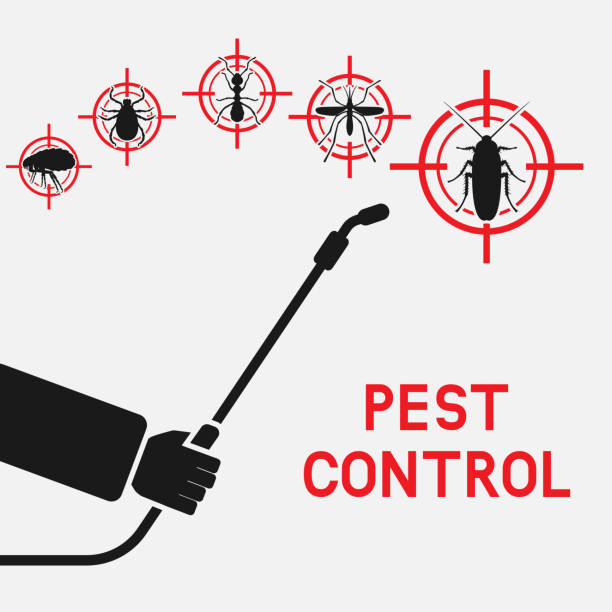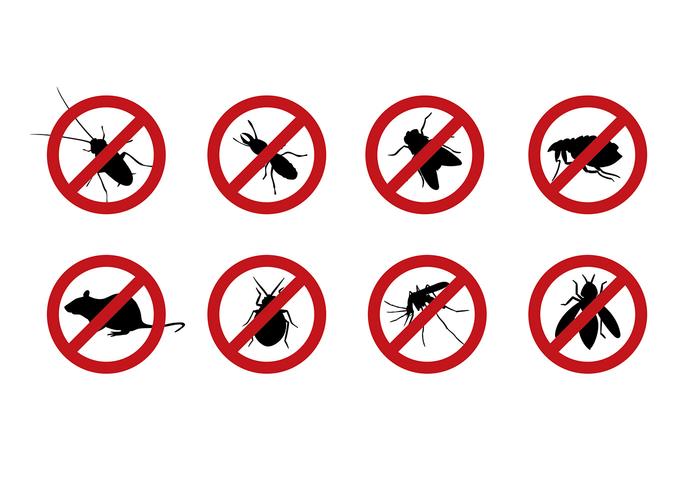Safe and Reputable Insect Control for Lasting Security
Reliable parasite administration needs a diverse strategy that balances environmental honesty with the requirement for efficient insect suppression. The subtleties of these techniques may not be promptly clear, prompting a closer assessment of the methods that can lead to lasting parasite control results.
Comprehending Insect Control Methods
Parasite control encompasses a variety of techniques intended at managing and getting rid of unwanted bugs and rodents that can threaten both health and wellness and building. Recognizing these approaches is important for efficient insect administration.
The primary classifications of insect control techniques include mechanical, organic, and chemical methods. Mechanical approaches entail physical obstacles and traps to stop parasite entry and capture undesirable varieties. Utilizing displays on windows or using sticky traps can dramatically lower insect populations without introducing unsafe compounds - exterminator coquitlam.

Chemical parasite control is frequently one of the most acknowledged approach, using pesticides to get rid of bugs. These chemicals can be efficient but need to be used with care to prevent negative effects on non-target varieties and the atmosphere.
Benefits of Eco-Friendly Solutions
How can environment-friendly remedies transform pest control practices? The adoption of green parasite control techniques uses various advantages, substantially enhancing the effectiveness and security of pest monitoring.

Another advantage is the positive impact on regional biodiversity. Environment-friendly options are designed to target specific insects while preserving advantageous insects and wildlife, advertising a well balanced ecological community. This technique lines up with the expanding customer need for sustainable techniques, boosting the reputation of bug control service providers.
Integrated Bug Monitoring Techniques
The execution of environment-friendly solutions normally causes the adoption of Integrated Parasite Management (IPM) techniques, which even more boost pest control efficacy. IPM is an all natural strategy that incorporates several tactics to take care of pest populations while minimizing environmental effect. This method highlights the use of organic, social, mechanical, and chemical controls, making certain a sustainable and balanced approach of parasite monitoring.
One essential element of IPM is the thorough assessment of insect task and ecological conditions. By keeping an eye on insect populaces and recognizing their life cycles, experts can apply targeted interventions that interrupt the insect's environment or lifecycle, lowering dependence on chemical pesticides. In addition, cultural practices such as crop rotation and habitat adjustment can significantly lessen pest establishment and recreation.
Another important element is using organic control agents, such as beneficial insects or microbes, which can normally reduce insect populations. When chemical applications are needed, IPM prioritizes using low-risk chemicals and uses them uniquely, decreasing exposure to non-target organisms and human beings.
Incorporating IPM methods not only improves insect control effectiveness but additionally promotes a safer ecosystem, straightening with the growing demand for lasting practices in Read Full Article insect management.
Safe Practices for House Owners
Comprehending the significance of secure practices in insect control can equip homeowners to efficiently manage parasite problems while securing their health and the environment. Executing preventive procedures and non-toxic approaches is important in minimizing exposure to harmful chemicals.
House owners should first assess their setting for problems that draw in parasites, such as standing food, water, and clutter waste. Routinely cleaning and sealing access factors can hinder parasites from invading the home. Using all-natural deterrents, such as crucial oils or diatomaceous earth, can exterminators near by provide effective alternatives to chemical pesticides.
When chemical treatments are required, property owners must select products that are especially labeled as safe for property usage. It is necessary to adhere to application standards meticulously to stay clear of overexposure. Furthermore, using targeted treatments in areas where bugs are determined, as opposed to covering spraying, can substantially reduce chemical use.
Finally, keeping open communication with parasite control professionals is important. Home owners ought to ask about the security of products utilized and demand eco-friendly options whenever possible. By taking on these safe methods, property owners can produce a healthier living atmosphere while effectively taking care of insect issues.

Tips for Long-Term Protection
Establishing an insect management technique that stresses lasting security can substantially boost the efficiency of the risk-free techniques formerly talked about. To attain this, property owners should implement routine inspections of their residential property, concentrating on concealed areas such as attic rooms, basements, and crawl areas. Early discovery of bug activity is crucial in preventing problems from holding.
These techniques reduce attractants that draw bugs into the home. Securing entry factors, such as fractures around home windows and doors, can properly block prospective bug accessibility.
Landscaping should additionally be thought about; maintaining plants cut and maintaining a range in between vegetation and the home minimizes concealing areas for insects. Utilizing natural deterrents, such as crucial oils or diatomaceous planet, can further inhibit infestations without considering severe chemicals.
Last but not least, teaming up with an expert insect control solution for periodic examinations can give an added layer of safety and find pest control near me security. These professionals can use customized recommendations and progressed therapies, ensuring that your home remains shielded against parasites in the lengthy term.
Conclusion
To conclude, dependable and risk-free insect control calls for a complex method that emphasizes green techniques and incorporated pest administration. By applying natural deterrents, conducting normal inspections, and keeping proper sanitation, homeowner can dramatically minimize insect populaces while safeguarding beneficial insects and the setting. Cooperation with specialist insect control solutions enhances the performance of these techniques, making sure customized options that supply enduring protection and satisfaction against future problems.
Efficient insect management requires a complex strategy that stabilizes ecological integrity with the demand for effective parasite reductions. The fostering of environment-friendly parasite control approaches provides countless advantages, dramatically improving the efficiency and security of bug management.The application of environment-friendly remedies naturally leads to the fostering of Integrated Insect Administration (IPM) strategies, which even more improve insect control efficacy. exterminator coquitlam. By monitoring insect populaces and identifying their life cycles, specialists can execute targeted interventions that disrupt the bug's habitat or lifecycle, minimizing reliance on chemical pesticides.In conclusion, trustworthy and secure bug control needs a complex strategy that highlights green methods and incorporated insect monitoring
 Alexa Vega Then & Now!
Alexa Vega Then & Now! Jennifer Love Hewitt Then & Now!
Jennifer Love Hewitt Then & Now! Joshua Jackson Then & Now!
Joshua Jackson Then & Now! Julia Stiles Then & Now!
Julia Stiles Then & Now! Macaulay Culkin Then & Now!
Macaulay Culkin Then & Now!